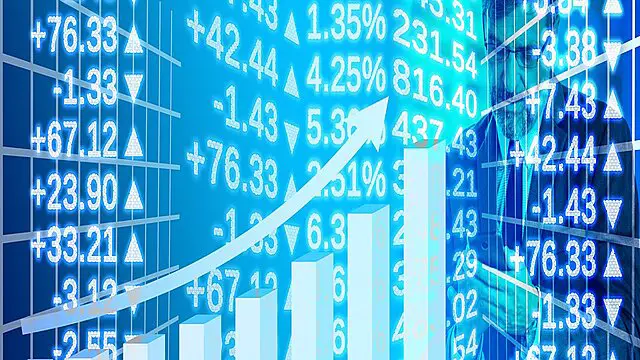What is the Definition of a Market Maker?

Definition of a Market Marker
A market maker is generally a major institution, bank, hedge fund, or investment firm. They contribute to market liquidity by allowing investors to buy and sell assets. There are some things you should know about market makers as an investor. We’ll look at how they work, why they’re crucial to the market, and how supply and demand are used.
The Fundamentals
A market maker is a trader who buys and sells securities in order to create liquidity in the market. Market makers are always willing to purchase and sell at a publicly declared price within the market. A market maker is typically a brokerage firm, huge bank, or other financial institution. Individuals, on the other hand, might be market makers.
Market makers, as their name implies, “produce the market.” In other words, they increase market liquidity by making securities readily available for purchase and sale. This increases the market’s liquidity. Most significantly, it facilitates the seamless operation of other trades. Without market makers, the market would be relatively illiquid, making trading difficult.
Why Does It Matter?
Market makers ensure that the market remains liquid, which is necessary for other trades to take place. They can also “make the market,” that is, purchase or sell according to a publicly-announced price to create a more liquid market.
Market makers also consider supply and demand. This is because market makers adjust prices to reflect current supply and demand, which are always shifting. Market makers must adjust their purchasing and selling prices on a regular basis to reflect market conditions, such as supply and demand.
Remember that supply refers to the quantity of something for sale (think of a commodity, an item, or even a service), whereas demand refers to whether or not a customer wants to buy it. It’s a crucial idea not only in economics but also in the financial sector.
Market makers also aid in the price regulation of undervalued or overvalued securities. Market makers can help increase the price of an undervalued stock by raising its price or decrease the price of an overvalued stock by decreasing its price because they can regulate the amount of security in the market and so establish the pricing for these securities based on supply and demand.
They can alter the prices based on inventories because they control the number of supplies in the market. (Keep in mind supply and demand.) This aids in market regulation.
What Do Market Makers Do?
A market maker participates in the securities market by offering investors trading facilities and increasing market liquidity. They provide bids and offers for a certain security as well as their market capitalization. Market makers are usually employed by large brokerage firms that profit on the spread between the bid and ask prices.
Each market maker posts buy and sell prices for a specific number of shares. When a market maker receives an order from a buyer, they instantly sell shares from their own inventory to fulfill the request. This enables them to finish the order. In a nutshell, market-making makes it easier for investors and traders to purchase and sell, resulting in a smoother flow of financial markets. There may be inadequate transactions and fewer investment activities if market making is not done.
A market maker must agree to quote prices at which it will purchase (or bid for) and sell (or ask for) securities on a continuous basis. Market makers must also specify the number of trades they’re willing to make, as well as the regularity with which they’ll quote at the best bid and best offer prices. Market makers must adhere to these guidelines at all times and in all market conditions. Market makers must maintain discipline when markets become inconsistent or volatile in order to continue facilitating seamless transactions.
The following is how it works: A market maker will buy 5,000 shares of stock from you at the bid price if you sell 5,000 shares of a particular stock. Then they’ll sell it for the asking price to someone else. The securities purchased by market makers can then be sold to broker-dealer firms inside their exchange. Keep in mind that market makers don’t always have a buyer lined up when they purchase stocks.
How do Market Makers Work?
Within securities exchanges, a number of market makers operate and compete with one another to gain investor business by setting the most competitive bid and ask offers.
Exchanges like the New York Stock Exchange (NYSE) employ a specialized system in which a single market maker makes all of the visible bids and asks. To ensure that all marketable trades are done at a fair price and in a timely way, a professional process is used.
How a Market Maker Makes Money?
Market makers, as we all know, keep the market liquid by buying and selling securities at publicly posted prices. This ensures that the market runs smoothly. However, they stand to profit from these trades.
When a market maker buys a stock, he or she does it at the bid price. They then sell these securities at the asking price. This is the price that their company is willing to sell these specific securities for. (Keep in mind that most market makers are employed by larger brokerage firms.) The bid-ask spread is the difference between these two values or the spread. The market maker’s profits are represented by the bid-ask spread. Market makers are also paid a commission for providing liquidity to their clients.
Consider the following scenario: an investor sees Apple shares with a bid price of $50 and an asking price of $50.10. This means that the market maker paid $50 for Apple shares and is now selling them for $50.10, netting a $0.10 profit.
In Conclusion
In the financial markets, a market maker plays an important function. They are readily available to buy and sell securities, resulting in market liquidity. The market would be relatively illiquid without market makers, and other deals would be disrupted.



